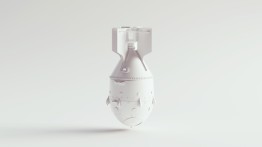COOPERMADE: The Manhattan Project

Although he was admitted to the Class of 1945, Meyer Steinberg graduated with a degree in Chemical Engineering from The Cooper Union a year early. Steinberg had compressed his studies into a three-year period in order to serve his country in World War II. However, instead of being packed off to the Pacific theater, Steinberg was sent to various locations around the country to inspect mysterious metal parts. While he didn't realize the scope of his assignment at first, he eventually discovered he’d been tapped to contribute to the United States’ atomic bomb program, a.k.a. the Manhattan Project. He eventually worked at Oak Ridge, where scientists showed that plutonium could be made from enriched uranium, and then at Los Alamos where he was part of a team processing plutonium.
Steinberg, whose parents had emigrated from Poland and ran a tiny clothing store in Astoria, later spent four decades at the Brookhaven Laboratory in Long Island. His research was wide-reaching: he developed concrete polymers for highway construction; studied the gasification of coal; and in 1998, at the age of 74, co-wrote a book on the dangers of greenhouse gas emissions and how those effects could be mitigated.
In 2015, he described the tense atmosphere that drove American scientists: “We knew that fission was actually discovered in Europe, so we were in a race with Nazi Germany,” he said. “We were very much concerned that, if Hitler got it first, it would have been devastating.”





